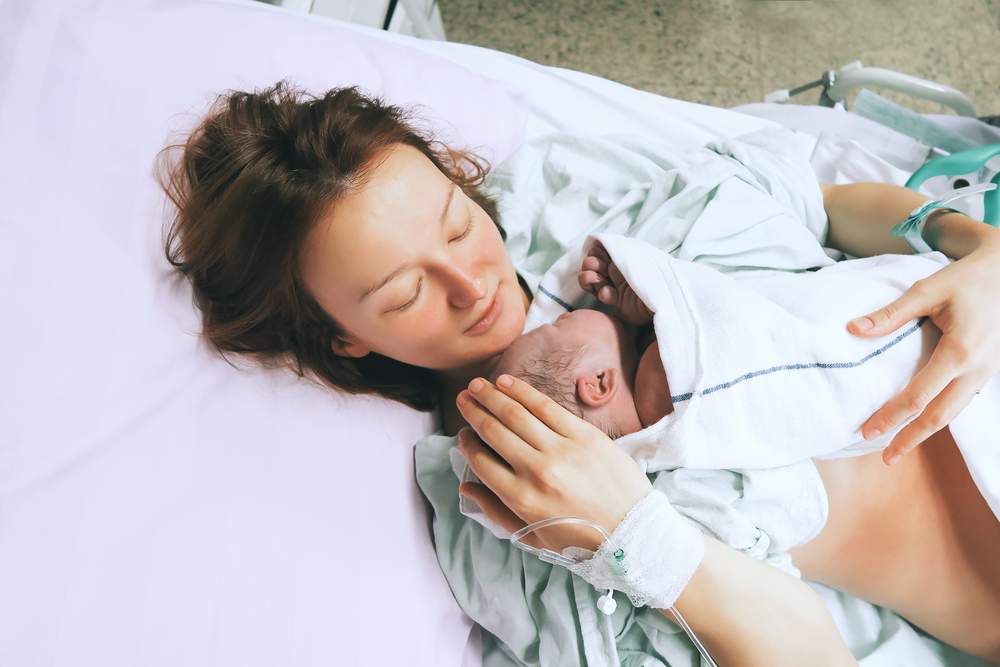Cure SMA Urges States to Start SMA Newborn Screenings This Year

For the new year, Cure SMA is stepping up its efforts to get states not testing for spinal muscular atrophy (SMA) at birth to implement the practice — noting that such newborn screenings could dramatically improve patients’ quality of life.
Some 17 states began newborn screenings for SMA last year, the most to do so in a single year since SMA was added in 2018 to the federal Recommended Uniform Screening Panel (RUSP) for at-birth testing.
Building on that momentum, the organization is targeting the remaining 17 states and the District of Columbia to try to get them to begin testing, particularly in light of the COVID-19 pandemic.
In two states, New Jersey and Virginia, Cure SMA reports that efforts to implement such screening are “almost there.”
“These states are in the final steps toward permanent implementation of newborn screening of SMA,” the organization states in its year-end report card.
The 15 states that do not currently test newborns are Alabama, Alaska, Arizona, Hawaii, Idaho, Louisiana, Maine, Montana, Nevada, New Mexico, Oklahoma, Oregon, South Carolina, South Dakota, and Texas. Washington, D.C., also does not offer SMA newborn screenings.
“Two years following the federal recommendation, these states are still not screening their newborns for SMA,” Cure SMA states in the report card. “Many of these states have taken promising steps while other states are at-risk of being the last adopters of newborn screening of SMA in this country.”
According to the report card, 33 states now have included SMA testing as part of their newborn screening program. Still, one in three newborns in the U.S. remain at risk for a delayed SMA diagnosis, which can have a deleterious impact on the patient’s health.
“The urgency to implement newborn screening of SMA in all states has increased dramatically during the pandemic, where we are seeing declines in symptomatic diagnoses, likely due to missed symptoms during virtual wellness checks or lapsed appointments with healthcare providers,” Kenneth Hobby, president of Cure SMA, said in a press release.
“We urge non-screening states to finalize action in 2021 and start ensuring early diagnosis for babies across the country,” Hobby said.
SMA screening tests for a specific change in the SMN1, or survival motor neuron 1 gene in a baby’s blood. Those infants with this specific change might have SMA. The screening is typically done 24-48 hours after birth using a few drops of blood from the newborn’s heel.
Newborn screening allows a child to be treated before irreparable damage is done. Early detection and diagnosis can markedly improve babies’ breathing and muscle control, and their ability to move independently. Some 50% to 60% of children born with SMA can never sit up independently and, without treatment, don’t live past age 2.
Moreover, the lack of a diagnosis can cause a serious psychological impact on families due to the missed opportunity for treatment.
There are now three disease-modifying SMA treatments available in the U.S. and some other countries: Evrysdi (risdiplam), developed by Roche and Genentech in collaboration with PTC Therapeutics and the SMA Foundation; Spinraza (nusinersen), by Biogen; and Zolgensma, a gene therapy developed by AveXis, now a Novartis company.
The RUSP is a list of 35 core and 26 secondary disorders for which the U.S. Department of Health and Human Services recommends testing during the individual states’ universal newborn screening programs.
These disorders are chosen based on evidence that supports the potential benefit of screening, the ability of states to screen for them, and the availability of effective therapies. However, it’s up to individual states to follow the recommendations.
The states that began SMA screening last year include Arkansas, California, Colorado, Connecticut, Delaware, Florida, Georgia, Illinois, Iowa, Kansas, Michigan, Nebraska, North Dakota, Rhode Island, Tennessee, Washington, and Wyoming.







